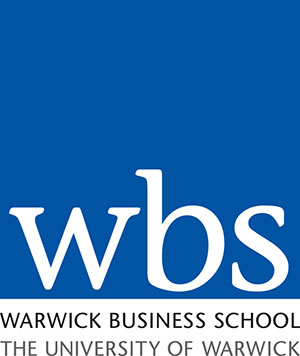- Behaviour
Benefit from Behavioural Science
The WBS Behavioural Science in Practice program focuses on real world, business and public sector, applications
While Big Data has been much hyped as a new way to help organizations meet their customer needs and desires; another equally important advance has been the application of behavioural science – new knowledge from psychology, behavioural economics, neuroscience and sociology – to our understanding of how customers think and act.
“Apple products have been so successful because of the deep understanding of user behaviour that has been at the heart of their design process. That advantage is not accidental and has been the result of decades of prior research. The same can be done across a huge range of commercial applications.” Nick Chater, Professor of Behavioural Science at Warwick Business School (WBS).
………………………………………………………………………………………………………………………..
Join Warwick Business School’s Behavioural Science in Practice program and let behavioural science transform the way your organization works.
Location: WBS London, The Shard │ Date: Wednesday 14 - Friday 16 November 2018
……………………………………………………………………………………………………………………….
Proven in making healthcare and other public services more cost-effective and better connected to their users, the principles of behavioural science can be applied by all forms of enterprise, public and private, to help them better understand and deliver for customers, employees and all of their stakeholders.
Developing products to meet customer needs usually involves surveys and focus groups. But behavioural science has revealed that people tend to post-rationalise their decisions, and often don’t know why they did something and have to make up a reason after the event. Insights from behavioural science allow organizations to dive deeper into the instinctive behaviours – inertia, peer-pressure, a desire to cooperate, etc. – that lie behind how people think, make decisions and act. This deeper understanding enables researchers to go beyond product testing and test the all-important customer interface in a sophisticated way.
The motivators of human behaviour clearly affect every part of an organization’s performance and culture. Employees as well as customers are motivated by innate human drives – such as the need to feel appreciated and heard, experience a sense of accomplishment, and to feel part of a wider community. Behavioural science shows how organizations need to take account of these intangible ‘intrinsic’ motivators as much if not more than ‘extrinsic’ motivators such as bonuses and company cars or the flip side, the fear of being made redundant, if they want a committed and engaged staff.
The Behavioural Science in Practice program at WBS, run in collaboration with the UK Government’s Behavioural Insights Team, introduces concepts and insights from behavioural science and offers practical strategies for applying its key principles in real world business and organizational contexts.
The three-day program will be of value to anyone who wants to learn and apply behavioural science to the way they work and their organization delivers for its stakeholders – from civil servants and policy makers to entrepreneurs and business leaders.
Participants in the program will:
- Uncover the drivers of choice and human decision making by exploring key findings of behavioural science and cognitive and social psychology
- Understand how, when, and why human behaviour deviates from ‘rational’ economic models, and learn how to apply that to different business sectors
- Learn how behavioural science has been applied in practice by public and private sector organizations
- With reference to your own sector, design a behavioural science intervention that can tackle a live problem
- Improve your solutions based on feedback and guidance from world-leading experts, producing a revised and improved intervention.
Warwick Business School is a leading thought-developer and innovator, in the top one per cent of global business schools.
ARTICLES YOU MIGHT LIKE
BOOK REVIEW
An authoritative antidote to executive stress, overwhelm, and burnout
DEVELOPING LEADERS QUARTERLY MAGAZINE AND WEEKLY BRIEFING EMAILS


































